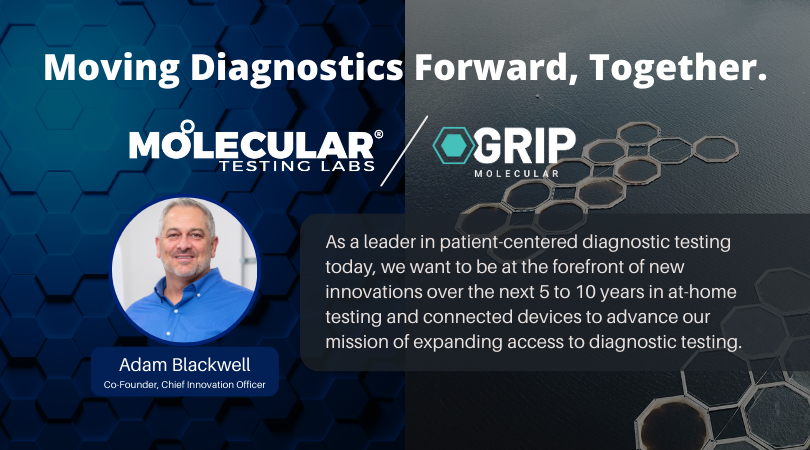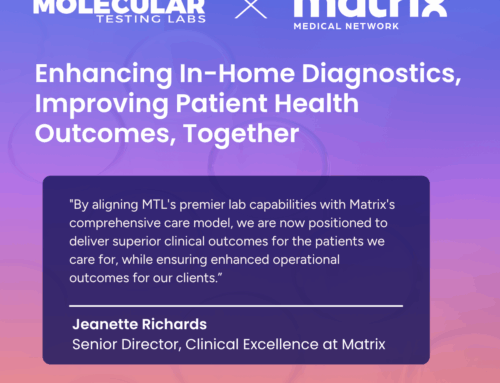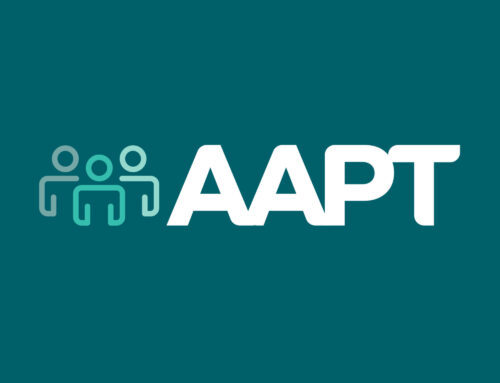
GRIP Molecular Technologies and Molecular Testing Labs Announce Collaborative Development of Groundbreaking At-Home Disease Testing Platform
Share:
December 18, 2023 — St. Paul, Minnesota & Vancouver, Washington –
Intending to reshape the landscape of at-home medical diagnostic testing, GRIP Molecular Technologies (GRIP) and Molecular Testing Labs (MTL) announced today that their collaboration has culminated in a successful clinical feasibility study of a state-of-the-art electronic biosensor technology that intends to bring lab-quality, multi-disease diagnostic test results directly into the hands of consumers, in minutes. Using self-collected samples, GRIP’s disposable diagnostic cartridge uses a standard smartphone to display the test results and transmit them to the user’s clinician to enable data-informed telehealth interaction, rapid disease diagnosis, and the prompt application of appropriate therapy, virtually.
Bruce Batten, PhD, GRIP’s Founder and Chief Technology Officer, highlights the technology’s transformative potential. “Imagine the power of a centralized medical laboratory in the palm of your hand ready to provide diagnostic information within minutes, anytime, anywhere. Our novel biosensor technology is poised to make this a reality. Using MTL’s highly characterized infected patient nasal swab samples, we have bolstered prior evidence of the GRIP technology’s extraordinary performance capabilities, with combined levels of diagnostic speed, convenience, and accuracy not possible with alternative technologies available for home use. Evidence shows the prompt application of appropriate therapy is important to maximize its beneficial impact — and typically this is within 48 hours of symptom onset when many home-based diagnostics provide concerningly low levels of accuracy, leading to diagnosis delays. GRIP’s technology will alter this paradigm by providing robust multi-disease diagnostic information at the time and location of need, which is often in the home at the time of symptom onset when rapid access to a clinic’s diagnostic equipment may not be possible.”
MTL Co-Founder and Chief Innovation Officer Adam Blackwell adds, “Our collaboration with GRIP is a testament to our shared commitment to empower consumers by providing them ready access to their health information. Together, we are committed to developing and offering new technologies that improve health, enhance healthcare experiences, and reduce costs in ways not possible with currently commercialized technologies.”
GRIP is actively raising investment funding to support their development efforts — learn more at https://www.gripmolecular.com.
MTL, with its state-of-the-art, high-complexity clinical laboratory, is passionate about opening access to clinical testing where geographic, financial, and stigma barriers create gaps in the delivery of healthcare. They continue to innovate and champion increased care through collaborations that will provide consumers readily available access to medical diagnostic information. For more details, visit https://moleculartestinglabs.com.
For further information or interview requests, please contact:
Media@MolecularTestingLabs.com
About GRIP Molecular Technologies:
GRIP Molecular is at the intersection of biology, electronics, and digital health. Their patented electronic biosensor technology aims to redefine medical diagnostics by providing rapid, convenient, and highly accurate testing solutions.
About Molecular Testing Labs:
Molecular Testing Labs is a CLIA-certified, CAP-accredited laboratory committed to increasing the accessibility and affordability of diagnostic testing via cutting-edge research and development, advanced logistics, and proprietary technology systems. They are pioneers in distribution and specimen collection methods, providing laboratory solutions through partnerships with retailers and pharmacies, digital health providers, research universities, departments of health and community-based organizations, 340Bs and Federally Qualified Health Centers, clinics and long-term care facilities, and payor networks.




